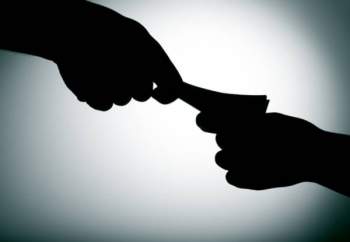
Notable Examples of Sports Bribery You Should Know

Most examples of bribery within the world of sports are linked to betting on sports. One of the most infamous examples, the Black Sox Scandal, was completely motivated by gains to be made based on betting on sports. The White Sox first baseman Arnold "Chick" Gandil convinced several of his teammates to participate in a scheme to throw the 1919 World Series. By throwing the World Series, the offending players hoped to earn tremendous amounts of money from the betting. Gandil was committing a form of bribery by offering to each player the high levels of profit that they might earn from such a scandal. The bribery was discovered due to the utter unlikelihood of its consistent failures. The offending players were suspended from baseball. This incident would stand out as one of the primary reasons why, in coming years, betting on sports would become illegal. There was too much opportunity for sports competitions to be affected solely by bribery or by the thought of monetary gain. Another major example of bribery in the world of sports involved the 2002 Olympic Winter Games bids scandal. This scandal put on display a different kind of bribery in sports, since it did not involve betting on sports. Instead, officials of the International Olympic Committee supposedly took bribes to choose Salt Lake City as the city to host the 2002 games. The members of the Salt Lake Bid Committee supposedly committed a number of acts of bribery, offering IOC members such bribes as scholarships, paid ski trips, trips to the Super Bowl, and plastic surgery. Cash money was never proven to be given, despite suspicion that cash bribery did occur. Either way, the bribes and gifts were enough to cause a major stir amongst the international community. As a result, ten members of the IOC were removed from the Committee, another ten were sanctioned, and stricter rules were adopted for the process of conducting future Olympic bids. Restrictions upon the gifts IOC members were allowed to accept were also put in place, and fifteen former Olympic athletes were put onto the Committee in an attempt to add integrity and balance to the Committee. While the allegations of bribery were never conclusively proven, this incident was enough to cause the IOC to change its procedures in order to prevent such allegations from arising in the future. A final, more recent example of bribery in the world of sports comes from Brazil in 2005. In Brazil, soccer, or football as it is referred to by the rest of the world, is a major sport. It is a source of great revenue as a form of entertainment. It was to be expected that someone would attempt to gain more money from the sport using illegitimate methods. Two Brazilian referees, Edilson Pereira de Carvalho and Paulo Jose Danelon, were bribed to fix matches based on the results and measurements of some websites for betting on sports. The individuals who bribed the referees were hoping to make major, substantial bets on the websites based on the fixed matches so as to capitalize on their bribery. The result of this was major turmoil in the world of Brazilian football, requiring matches to be replayed and any number of lawsuits. The most fortunate element is that those parties guilty of bribery, both soliciting and offering the bribes, were caught in the act.


















